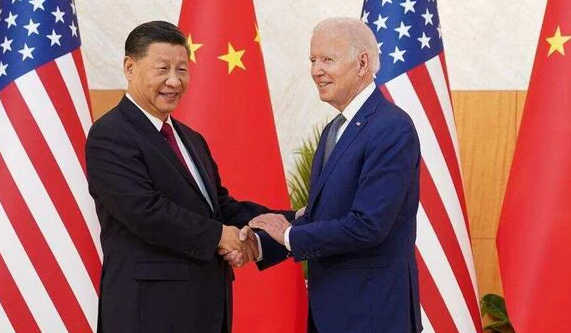A major piece of Mr Obama’s “turn to Asia” was a guarantee to join the East Asia Culmination consistently. China’s Strategic Gains: Is America Losing Southeast Asia? Led and facilitated by an alternating cast of South-East Asian pioneers, the highest point permits the locale’s legislators to set the plan and let the American president know their thought process of his strategies.
It conveyed a message that America would pay attention to little nations and drew a differentiation with China, which has a propensity for hectoring its neighbors at the gathering. The year that America joined the East Asia Highest point, Hillary Clinton, Mr Obama’s secretary of state, kidded that “a big part of tact is appearing.” This was in stark contrast to the perception of China’s strategic gains.
Quite a while back Barack Obama spent a few days in the nightfall of his administration in Laos. He purchased a coconut from a side of the road slowed down, visited sacred destinations, and afterward endured two days of stifling summitry. Yet again however when Asian pioneers assemble in Laos on October 11, President Joe Biden won’t be there. He is skirting the East Asia Highest point, a yearly gathering of 18 nations, for the second year straight. Antony Blinken (imagined), his secretary of state, will address America all things considered. More news…
America’s separation from Asia’s top multilateral organization is somewhat the aftereffect of struggles in Europe and the Center East that stand out. Yet, it is additionally intentional. The Biden organization has generally quit attempting to convince the area of its situation on China in talking shops like the East Asia Highest point. Therefore, some wonder about China’s strategic gains in the region.
All things being equal, centered around working with nations as of now share its viewpoint, like Australia, India, and Japan, which alongside America make up the Quad, a security gathering. Mr Biden facilitated their chiefs at his home a month ago.
However, South-East Asia stays at the geographic and financial heart of the opposition among America and China, so disregarding it conveys gambles. Interestingly this year a yearly overview of legislators, government employees, and business pioneers by the ISEAS-Yusof Ishak Establishment, a research organization in Singapore, saw that as whenever compelled to line up with one or the other America or China, South-East Asian elites would pick China. This leads to the concern of China’s strategic gains and America losing Southeast Asia.

Other than strategy, there are three purposes behind this. To start with, American protectionism and modern strategy are estranging South-East Asia. America offers no new admittance to its market in international alliances. Duties are overturning laid out exchange designs. “Derisking” measures are driving up costs as supply chains split into two.
Second, South-East Asians have started to address whether American approach on Taiwan is driving up the gamble of contention. America has consistently found some kind of harmony on oneself administering island. It attempts to prevent Chinese intends to retake it by leaving open the chance of an American military reaction while deterring Taiwanese pioneers from moving towards autonomy and hence inciting China.
Yet, South-East Asians dread that America may be leaving from this line. A visit to Taiwan in 2022 by Nancy Pelosi, the previous speaker of the House, brought pressures up in manners that Southeast Asian states saw as perilous. Mike Pompeo, who was secretary of state under Donald Trump, has said that America ought to help Taiwanese freedom. In this context, the concern of China’s Strategic Gains: Is America Losing Southeast Asia becomes more relevant. Assuming Mr Trump gets back to government, Asian authorities will stress more.
Discover more from How To Got
Subscribe to get the latest posts sent to your email.

